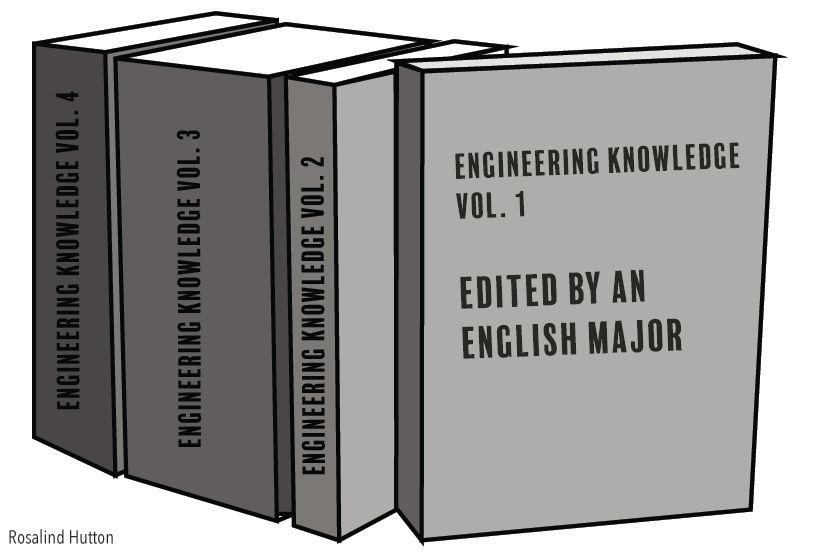As an English major, there is one question I hate the most when someone finds out my career path: “So, what are you going to do with that? Teach?”
I hate this question because it is normally paired up with a horrified look and a nasty attitude. Teaching is a noble, difficult profession, and it hardly gets either enough respect or enough pay. It bothers me when those in STEM believe teaching is our only option within humanities as it shows they do not respect the usefulness of our degrees. Just because our career options are not as clear as those of engineering majors, it does not mean there is only one or none. Speaking as an English major, we can do more than teach.
The problem is there are too many career options, and often, the extent of our options is not considered by those in STEM. Some of the more common options include law, journalism and publishing; however, there is also editing, copywriting, technical writing, research, marketing, business, management and many more.
According to Amanda Ruggeri with BBC, “One recent study of 1,700 people from 30 countries … found that the majority of those in leadership positions had either a social sciences or humanities degree.”
As it turns out, I am not wasting my time pursuing a degree in a humanities field. One concern people have regarding the humanities is pay and job availability. According to Heather Long with the Washington Post, “The perception is that STEM (science, technology, engineering and math) is the path to employment… Contrary to popular belief, English majors ages 25 to 29, had a lower unemployment rate in 2017 than math and computer science majors.”
It might be hard for some STEM majors to believe an English or history major can find a job outside of a coffee shop, but it is true. Businesses across the world have seen the value of our skills.
Long also argues, “In management and leadership positions, communication is key as leading economists and central bankers have been quick to point out at this critical juncture for the world economy.”
Humanities teach students critical thinking, clear writing, communication and awareness of the world. This is not to say people do not learn valuable skills in STEM. STEM jobs are important, but too many people overlook or underestimate an education in humanities because engineering is thought of as superior. Without our communication skills, there would be chaos and disaster. Engineers might learn how to build machines, but we are the ones who write the manuals they follow. Both are important, but only one side is deemed useful.
Another misconception I have heard is majoring in English is easy.
Alison Griswold with Business Insider explains the value of English majors and what we do. Griswold writes, “English majors routinely take on large projects that require them to manage their time efficiently, meet self-imposed deadlines and work under time pressure to complete long- and short-term projects. Those skills are valuable in any workplace.”
I understand other majors besides STEM or humanities have projects and hard assignments too, but there are reasons why English majors are known for living in the library. Our reading and writing workloads are not for the faint of heart. People might assume an English degree is all spelling and grammar, and therefore, is easy; however, it is not. On that note, people should work on their grammar, but I digress.
English majors can take a complicated piece of literature and explain it clearly while also analyzing it and making meaningful connections through critiques. This process is harder than one might think. We can use our abilities with any job at any time. Sure, we do not have to do as much math or science, but as a former STEM major, I can easily say with confidence that both have their challenges; however, I did not receive as much backlash and criticism when I was a STEM major as I do now as an English major.
It is also about preferences. While many of us do not like math, many STEM majors do not like reading or writing. It does not mean either side is stupid or useless.
When thinking about what it takes to major in either STEM or humanities, we must keep in mind there is value in the different strengths. With that being said, if you are a STEM major but not good at math, come to the dark side. We have endless reading lists and tea waiting for you.





















































































